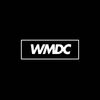Ricky Gervais, the New Media Whistleblower: On the Limits of Comedy in Ads
Ricky Gervais highlights media censorship in ads, revealing limits on comedic freedom. Should banned ads be judged by viewers instead of filtered by media gatekeepers?
This article is not sponsored by Dutch Barn. Really, it’s not.
Ricky Gervais, celebrated comedian, and co-creator of The Office, is facing a challenge—one that’s putting him in the spotlight for reasons that have less to do with punchlines and more to do with media gatekeeping. In a recent video, Gervais tried bringing his trademark wit to a new commercial, only to run headfirst into the often arbitrary rules of media censorship. What could have been a fun ad campaign quickly turned into a commentary on media restrictions, with Gervais as the unlikely whistleblower.
Humor in advertising isn’t a new trend; Ryan Reynolds has practically trademarked the genre with his ads for Mint Mobile, where his writing and acting bring humor to an industry not exactly known for laughs. Other celebrities are joining the movement, using humor to connect directly with audiences in a refreshing way. But for Gervais, the freedom to be himself in a commercial seems to be another story entirely.
In his ad, Gervais joked about his Uncle Sid, made references to priests, and pointed out the contradictions in alcohol advertising—all hallmarks of his classic, often provocative style. But one by one, each bit of satire got flagged. Changing course, Gervais toned down the jokes, then went for a dry, ironic take on the topic at hand, which also didn’t make the cut. In a final attempt, he poked fun at the very brand he was promoting, only to be blocked again.
It’s not that every ad should get a free pass, and some jokes may, admittedly, tread close to the line of “too much.” But the media’s role as gatekeeper, censoring content that could genuinely resonate with audiences, raises a broader question. Are media platforms protecting viewers from offensive content, or are they really just curating material that suits their interests, restricting genuine comedic expression along the way?
Imagine a platform where comedians and creators who’ve had ads banned could submit their work, opening it up for public viewing and discussion rather than leaving it buried in the editing room. At WMDC, we like to think of ourselves as such a space—a hub for unfiltered, interesting, and at times controversial media. Instead of outright censorship, why not foster discussion? Allow audiences to decide if the content really crosses a line or if it’s just edgy humor doing its job: making people laugh, and think.
So Dutch Barn, or whatever company Ricky was trying to make jokes for, come play those “banned” ads here. We’ll take a look, get the conversation going, and maybe have a laugh along the way. After all, media should be about more than just making people comfortable—it should be about keeping things real.

